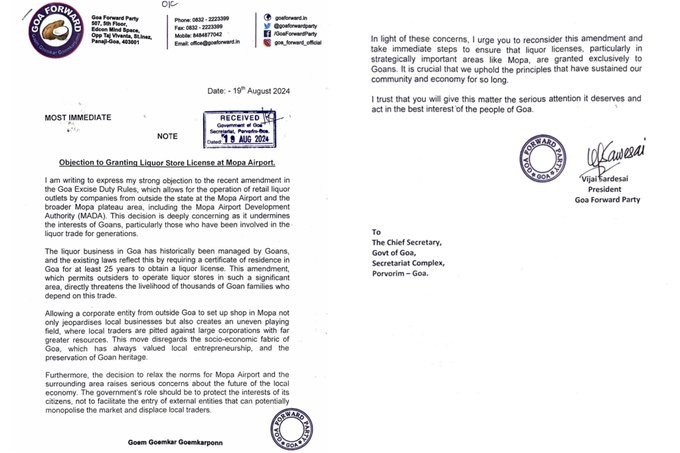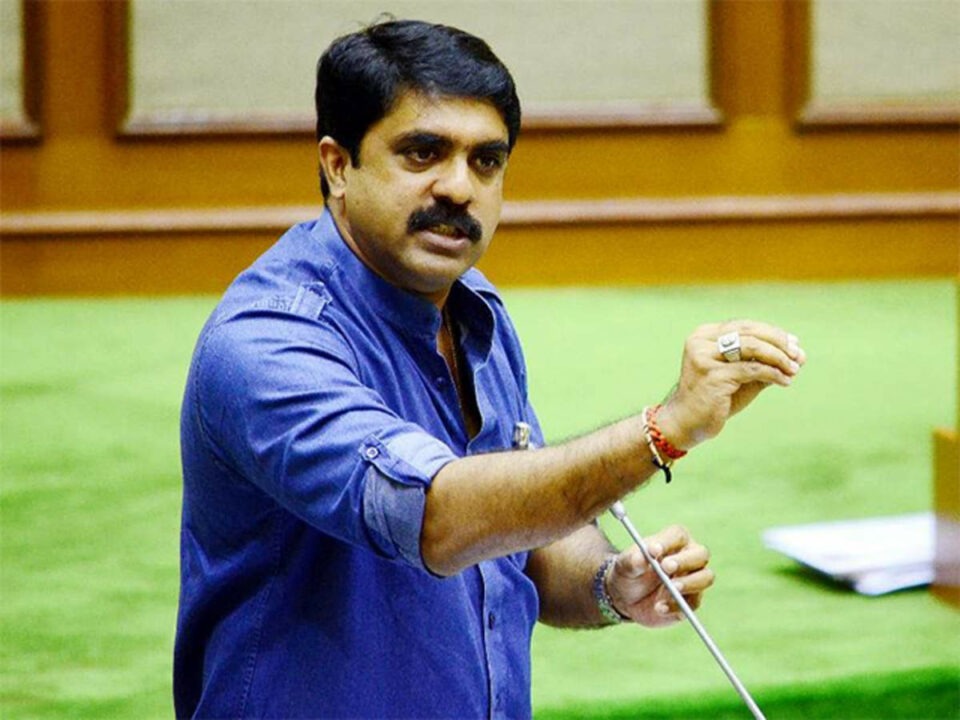The recent amendments to the Goa Excise Duty Rules, which permit external corporations to operate retail liquor stores at Mopa Airport, have sparked significant controversy among Goan communities. Opposition leader Vijai Sardesai, President of the Goa Forward Party (GFP), has strongly criticized these changes, claiming they threaten local businesses and traditional livelihoods. Historically, the liquor trade in Goa has been controlled by locals, with regulations requiring a minimum of 25 years of residency for obtaining a liquor license.

Sardesai argues that the new policy, by allowing large external corporations into the market, creates an uneven playing field that could endanger the economic stability of Goan families dependent on this industry. In his letter to the Chief Secretary, Sardesai expressed his concerns that the amendments undermine the economic and social fabric of Goa, potentially displacing those who have been part of the liquor trade for generations.
The backlash also highlights broader concerns about the influence of external entities in Goa’s economy. Allegations of cronyism have surfaced, with connections between influential individuals and lucrative liquor contracts intensifying scrutiny of the policy changes. Sardesai’s recent tweet reinforced his stance, stating, “WILL NOT ACCEPT LAWS THAT EXPEL LOCALS AND EMBRACE OUTSIDERS,” and called for a retraction of the amendments, advocating for liquor licenses to be reserved for Goans.
This policy shift is part of a larger debate on how external investments and corporate interests are affecting local economies. Critics argue that such decisions impact not only the liquor industry but also broader local interests, including land deals and tourism projects. As the debate continues, the focus remains on balancing external investments with the protection of local economic opportunities and cultural heritage.
As an independent media platform, we do not take advertisements from governments and corporate houses. It is you, our readers, who have supported us on our journey to do honest and unbiased journalism. Please contribute, so that we can continue to do the same in future.

